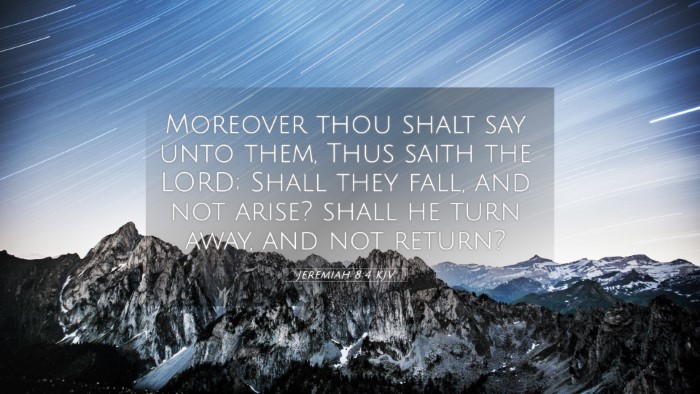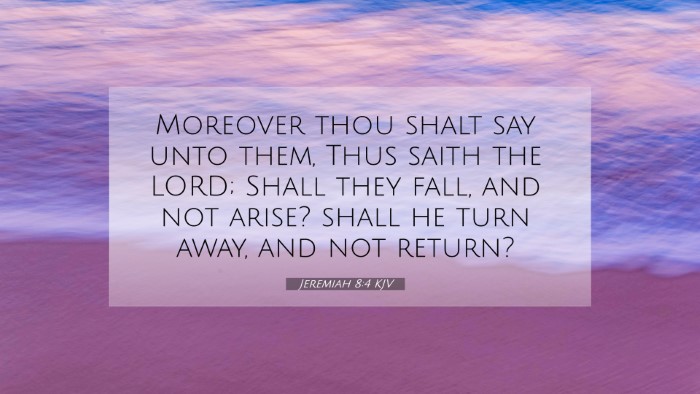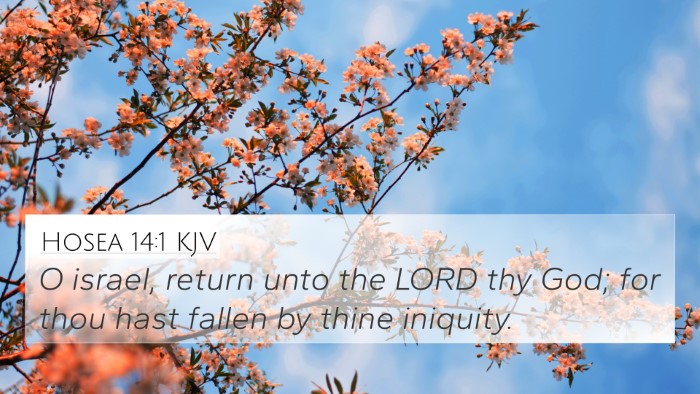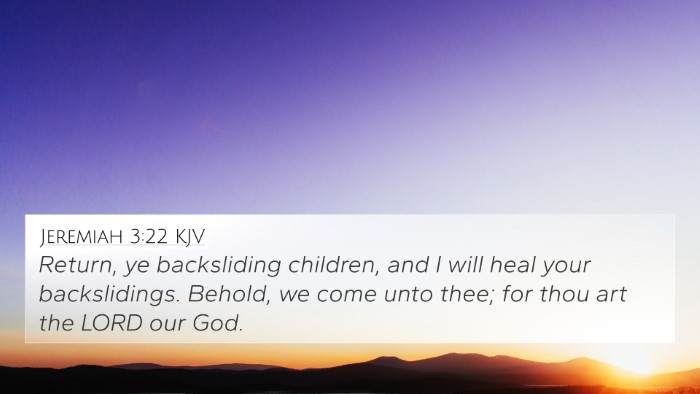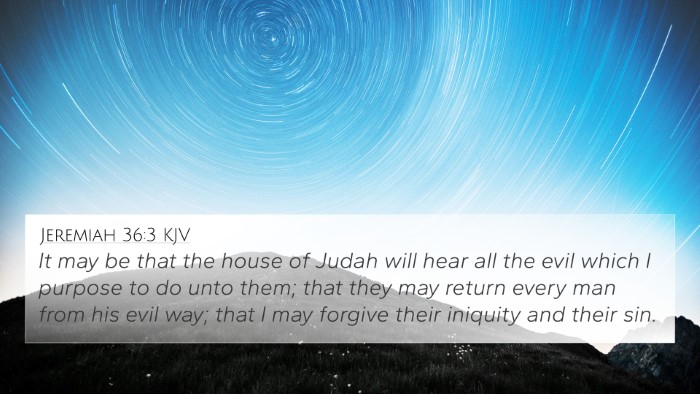Understanding Jeremiah 8:4
Jeremiah 8:4 states, "Moreover thou shalt say unto them, Thus saith the Lord; Shall they fall, and not arise? shall he turn away, and not return?" This verse invites reflection on the nature of repentance and the consequences of turning away from God.
Context and Background
Jeremiah, known as the weeping prophet, prophesied during a tumultuous period in Israel's history. His messages were often directed toward the unfaithfulness of the people of Judah, who had turned away from God. This particular verse emphasizes a rhetorical question that raises important themes relevant to the human condition and divine grace.
Thematic Insights from Commentaries
-
Matthew Henry:
Henry points out that this verse showcases God's call to awareness regarding the consequences of sin. The emphasis on falling and arising signifies the need for repentance; God desires His people to turn back to Him after their failures, which reflects His enduring mercy.
-
Albert Barnes:
Barnes notes that the divine challenge presented in the form of questions reveals God's expectation that His people should seek restoration. The idea of turning away and not returning illustrates the foolishness of disregarding God's call, as true return implies a change of heart and action.
-
Adam Clarke:
Clarke provides a theological perspective by discussing the broader implications of falling away from grace. He emphasizes that the absence of repentance leads to spiritual death, while the call to rise again underscores the hope present in renewal through God's grace.
Cross References
This verse can be contextually linked with several other passages in the Bible that resonate with its themes of repentance and God's desire for His people’s return:
- Proverbs 24:16: "For a just man falleth seven times, and riseth up again." - This verse parallels the theme of resilience in falling but returning to righteousness.
- Hosea 14:1: "O Israel, return unto the Lord thy God; for thou hast fallen by thine iniquity." - A direct call for Israel to return to God after sinning.
- Luke 15:18: "I will arise and go to my father, and will say unto him, Father, I have sinned against heaven, and before thee." - Echoing the personal journey of repentance and restoration.
- Micah 7:8: "Rejoice not against me, O mine enemy: when I fall, I shall arise; when I sit in darkness, the Lord shall be a light unto me." - Affirmation of hope in the face of sin and despair.
- Romans 8:1: "There is therefore now no condemnation to them which are in Christ Jesus..." - Assurance of grace following repentance.
- Acts 3:19: "Repent ye therefore, and be converted, that your sins may be blotted out." - Direct affirmation of returning to God.
- Isaiah 55:7: "Let the wicked forsake his way, and the unrighteous man his thoughts: and let him return unto the Lord, and he will have mercy upon him." - Encouragement for all to turn back and embrace God's mercy.
Conclusion
Jeremiah 8:4 serves not only as a historical reflection on Judah's spiritual state but also as a timeless message about the nature of repentance and God's mercy. Through careful interpretation and cross-referencing with other Scriptures, believers can find a comprehensive understanding of God’s call to return and rise from spiritual complacency or decline.
Exploring Bible Verse Connections
To effectively find Bible verse cross-references, one can utilize various tools:
- Bible Concordance: A helpful resource for identifying key terms and themes.
- Bible Cross-Reference Guide: A structured way to approach scripture and understand relationships between verses.
- Cross-Reference Bible Study: Engaging in methods that highlight interconnected themes across the scriptures.
Using Bible Cross-References in Study
Understanding how to use Bible cross-references can enhance one’s study and interpretation of scriptures. Specific methods involve:
- Identifying Connections: Linking verses thematically helps to grasp comprehensive messages presented in the Bible.
- Comparative Bible Verse Analysis: Analyzing similar verses across different contexts can provide deeper insights into God’s work.
- Cross-Referenced Themes: Focusing on repeated themes such as repentance, mercy, and redemption fosters a better understanding of God's character.
User Intent and Related Queries
When exploring biblical themes related to Jeremiah 8:4, users may seek answers to questions such as:
- What verses are related to Jeremiah 8:4?
- How do Jeremiah 8:4 and Luke 15:18 connect?
- Bible verses that support the themes of repentance in Jeremiah 8:4?
The exploration of Bible verses through cross-referencing not only deepens understanding but also connects believers through the shared themes of redemption and grace that run throughout the Scriptures.

